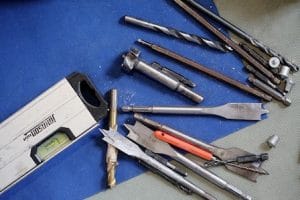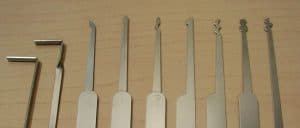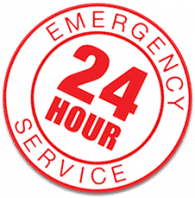How to become a locksmith?
To become a locksmith you first need to be willing to work a lot and at unusual hours. Waking up at 4am putting some cloths on, washing up your face and hit the road to half an hour drive is not something unusual when you are a locksmith. You also need to want to improve your “locksmithing” knowledge base and to be committed to a dedicated customer service; even if sometimes you don’t feel like it.
To get qualified as locksmith there are few different routes that you can take.
In general, the recommended way is to train via an accredited course through locksmith organisations. Anyone can apply for such a course. You may wish to self-fund a course like this, or approach locksmith companies to see if they are willing to take you on to train. Some companies might also accept you via an apprenticeship route.
In some parts of the world where official certifications for being a locksmith is not a legal requirement you can also start by learning from any source available to you (like the internet) and do it on a self-employed basis. This is however less likely to be the path you’d like to take.
Whether you’re working for a company or on a self-employed basis there is a wide variety of tools and equipment that you will need at your disposal.
Without naming them all, below are some locksmith specialist tools and “regular tradesmen’s tools” you will require to operate as a locksmith.
Locksmith Tools
- Super mica (lock slipping plastic cards).
- Mailbox tool.
- Various lock picks & Tension wrench.
- Snapper bars.
- Bump keys.
- Pick guns.
- Key extractors.
Handyman Tools
- Drill.
- Special drill bits.
- Hammers.
- Screw drivers.
- Screws and nails.
- Pliers.
- Cutter.
- Hacksaw.
- Helen Keys.
- Crafts Knife.
- Headlight.
- Wood filler.
And the list goes on.
You’ll also need a suitable vehicle to get around and carry stock

How to become a locksmith in the UK?
To become a locksmith in the UK you can train via an accredited course through the British Locksmiths Institute (BLI). This organisation is a part of the Master Locksmiths Association (MLA). A Master Locksmith is someone who is approved and certified by the Master Locksmiths Association; this is the mark of a reputable, skilled tradesman. So you are more likely to get a job in a locksmith company if you have that certification.
 This will also give you more credit if you open your own locksmith business.
This will also give you more credit if you open your own locksmith business.
Apart from that you can go to any other UK locksmith association course and start looking for job in the field (or again, start your own business).
Another mark of quality if you choose to become a self-employed locksmith is recognition from the Guild of Master Craftsmen. The Guild, in their own words, only accept Master Craftsmen who are “professionals that master a particular trade”. The Guild are so confident in the craftsmen they endorse, that they have a conciliation process so any disputes can be resolved as painlessly as possible; they would not offer this without being supremely confident in the craftsmen they count as their members.
Something else to think about as a locksmith business owner is gaining Contractor Health and Safety Assessment Scheme (CHAS) accreditation. This particular accreditation shows that your chosen locksmith is serious about health and safety and producing a quality job.
How much can you earn as a locksmith?
Salaries vary, but as a rule of thumb you can expect to earn around £16,000 as a newly qualified locksmith, progressing to £20,000 to £25,000 when more experienced. Highly experienced locksmiths can expect to earn around £30,000, though your earnings is self-employed are only limited by the amount of call outs and hours that you are able to attract and complete.
As with lots of roles, being a locksmith in London will attract a slightly higher salary; this is often described as “London Weighting” and accounts for the generally higher cost of goods and services in the capital.

Locksmiths in London Related FAQs
Do locksmith in London cost more than in other parts of the UK?
Well he short answer to this is yes. Generally, a locksmith in London will cost more than in the suburbs. It is however depending on the locksmith company you choose and type of services. Emergency locksmith services in London can get much more expensive, especially to those living in Central London where congestion charges and parking add some cost to the overall sum of work.
Which lead us to another frequently asked question from those who are looking to become a London locksmith;
Do you Locksmith London earn more than locksmiths in other UK districts?
The answer to this is could be both yes and no.
As a rule of thumb as a London locksmith you have a better starting point in terms of what you charge and the amount of clients you have access to, but your profit is also a result of how you manage your work.
You may face higher travelling charges, the cost of living in London can impact literally eliminate your income and if you don’t manage to get enough customers or work in a company that pass a lot of work towards your direction you can end up spending more than you actually earn.
So if you want to stay profitable while working as locksmith in London take note of these factors and manage your days properly.
We would advise becoming a locksmith and start working in London only if you have a good plan on everything around the job. Don’t move to London before you’ve got a plan in place.
If you’re looking to move and work as locksmith in London and don’t have a direction yet, we welcome you to reach our team London 24 Hour Locksmiths at 02081238060. We’ll do our very best to help.

